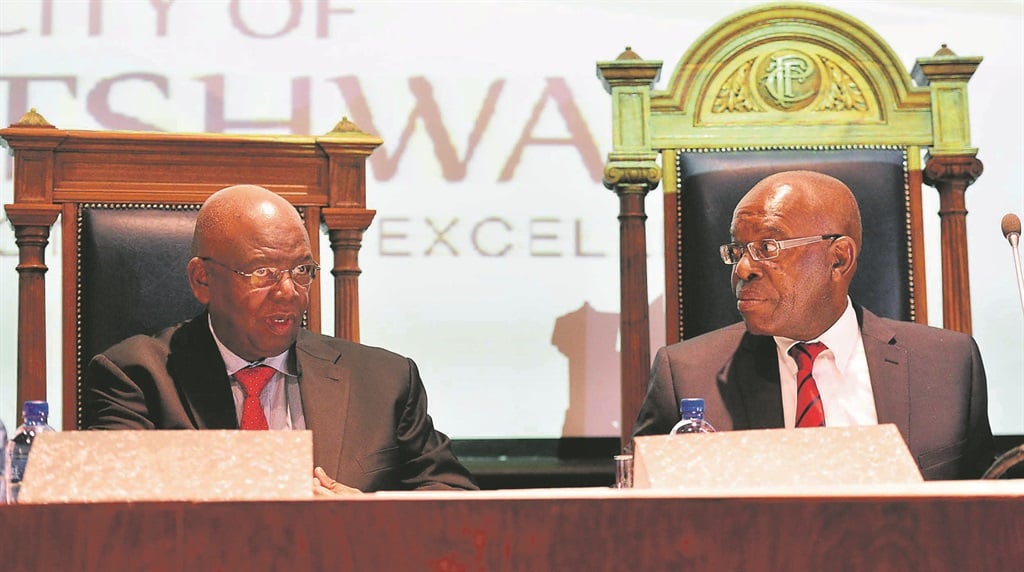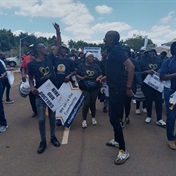
The fundamental error and what now constitutes the heart of the irrationality demonstrated by the Seriti Commission in its investigation of the controversial 1999 arms deal, was the manner in which it denied witnesses the opportunity to present their full evidence and its failure to call on key witnesses to appear before it.
These were the submissions made by Advocate Geoff Budlender arguing for the applicants, civil society non-governmental organisations Corruption Watch and Right2Know Campaign, before a full bench at the North Gauteng High Court on Tuesday.
“The essence is that the commission failed to do its job – it failed to conduct an inquiry, and failed to test the evidence of crucial witnesses. The failure to investigate those witnesses collapses the inquiry,” said the passionate Budlender.
Giving further evidence that the commission had failed to discharge its mandate correctly, the advocate argued that “the fundamental error” by the Seriti Commission “was the manner in which it denied witnesses the opportunity to present their full evidence, nor for them to give the evidence they wished to give.”
The commission was also attacked for failing to call those accused of corruption to give evidence.
Former president Jacob Zuma – although implicated – was never called to the witness stand.
Witnesses who attempted to submit any form of evidence that implicated Zuma were, according to the applicants, obstructed by Judge Willie Seriti - who led the commission.
In the end, only two witnesses that were directly accused of corruption were called, they were Fana Hlongwane and Chippy Shaik.
However, the civil society organisations argued that both witnesses were allowed to give their evidence unchallenged: “Neither Judge Seriti nor Judge Thekiso Musi asked Hlongwane a single question, while Shaik was only asked a small number of questions and was not confronted with the large amount of evidence against him.”
“The commission failed to test the evidence of key witnesses – this is an astonishing failure. The witnesses made bold denials of wrongdoing and the commission did not interrogate those denials,” argued Budlender.
In 2015, more than forty civil society organisations (including Right2Know Campaign and Corruption Watch) called for the work of the commission to be disbanded as it was effectively a cover-up. This prompted three critical witnesses, Andrew Feinstein, Paul Holden and Hennie Van Vuuren, to withdraw all participation from the commission in protest at the way it was conducting its investigation.
The applicants then submitted that in light of these key witnesses pulling out, the onus laid on the commission to do a thorough investigation and not the half-hearted effort that it undertook.
“The commission cannot excuse its failure to investigate by claiming that those making the allegations of corruption haven’t provided evidence – it is the commission’s duty to undertake those investigations,” argued Budlender.
The Seriti Commission found that there was no corruption, particularly by political figures, and this is the basis on which Corruption Watch and the R2K Campaign are in court, as they believe this is misleading.
There is a general understanding that the findings of the commission, unlike those of the Public Protector’s reports, are not binding. However, to prevent those accused of using the Seriti Commission’s findings in another court of law to legitimise why they should not be found guilt is what Budlender argued.
He said that the findings should be reviewed and set aside based on the fact that “there were a number of reports and cases that were dismissed by the commission as irrelevant, and that any reasonable commission would have taken these reports and cases into account.”
“The commission had a report from the German police containing devastating allegations of corruption and the commission did nothing with that report,” submitted the advocate.
Judge President of Gauteng Dunstan Mlambo asked whether the commission did investigate flows of foreign money into South Africa
Budlender responded that he couldn’t find any evidence that the commission approached the SA Reserve Bank or National Treasury for assistance in conducting such an investigating.
Advocate Nazeer Cassim representing the state argued that the findings of the commission do not prevent any other Chapter Nine institution from pursuing charges against those accused in the arms deal saga.
“The commission does not prevent for example, the National Director for Public Prosecutions from bringing any corruption charges in respect of the arms deal,” said Cassim.
The Seriti Commission has been labelled as “a farce,” “a whitewash” and “a waste of taxpayers’ money” meant “to shield Zuma from corruption allegations” by the two applicants.
Informing the nation of the commission’s findings in 2016, Zuma said that it did not find an “iota” of evidence that proved that the arms deal was flawed or corrupt. The commission cost taxpayers R10.1 million.
“On whether [anyone] influenced the award or conclusion of any of the contracts in the procurement process, the commission found that the evidence presented before it does not suggest that undue or improper influence played any role in the selection of the preferred bidders, which ultimately entered into contracts with the government,” Zuma said.
The current case is expected to be concluded on Wednesday.
| |||||||||||||
| |||||||||||||




 Publications
Publications
 Partners
Partners








